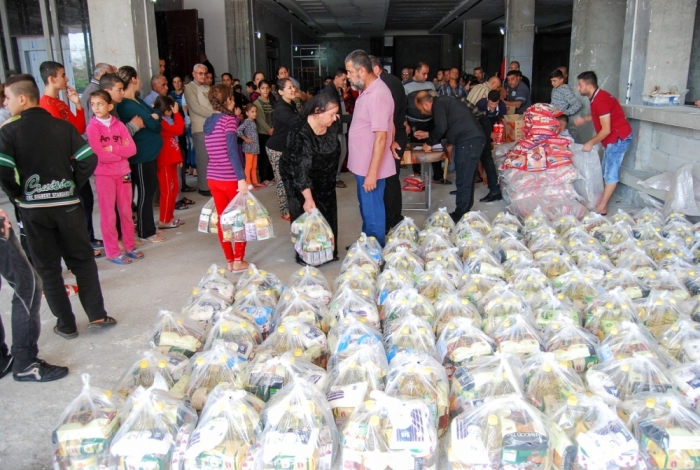Christian Refugees Fleeing ISIS 'Will Be the Last' to Receive Help; Worldwide Christian Community Must Step Up, Says Persecution Watchdog Group

Persecution watchdog group Open Doors says Christian refugees fleeing ISIS in Iraq and Syria are among the last groups to receive help and necessities for their survival, and is calling on churches and Christian communities throughout the world to step up and provide for their brothers and sisters in Christ.
Open Doors CEO David Curry told The Christian Post in a phone interview on Monday that refugees in northern Iraq and Syria are facing "huge food shortages," with close to 300,000 Christians having limited means by which to pay for food. With millions of people displaced across the region, the group estimates that $20 million will be needed to provide food for the refugees in the next 18 months.
Curry said that one of his biggest concerns is that Christians "will be the last" among the refugees to receive vitally needed help, and called on Christians around the world to partner with them and remind those who are suffering that they are not forgotten.
A press release on the food shortages pointed out that Open Doors has been providing emergency food, hygiene kits, medical kits, safe houses, Christian spiritual resources and trauma counseling, and has been partnering with churches in the region for nearly 25 years.
Curry noted that the underlining factors behind the crisis in Iraq and Syria remain very similar to the situation at the start of the year. Back then, Open Doors released its World Watch List of countries where Christians face the most persecution for their faith, and ranked Iraq and Syria No. 3 and No. 4 on the list.
Christians and other religious minorities have suffered greatly at the hands of ISIS, which has forced them to choose between converting to Islam, paying a special tax, or being killed for their faith across the many cities it has captured in the region. The persecution has forced hundreds of thousands of Christians to flee their long-established homes, such as in the city of Mosul, Iraq.
Back in January, Curry told CP that he would like world leaders to understand that "the persecution of Christians is a leading indicator, around the world, of major humanitarian problems. It's not that Christians are collateral damage; it's that they're being targeted — and wherever they are being targeted, there are future problems."
One major problem in Iraq and Syria is that although ISIS is allowing refugees to move throughout the region, it has also set up checkpoints where militants strip people of everything they own, sometimes the very clothes off their backs. Curry pointed out that many of the refugees had "very little time" to prepare when ISIS attacked their communities, and had to leave most of their possessions and life savings behind.

As for Open Doors workers partnering with churches and assisting the refugees on the ground, he said that on a number of occasions ISIS soldiers have been located "just miles away" from the refugee camps in Kurdistan, northern Syria, and other locations, but there have been no attacks reported.
Curry admitted that it will be hard to say how long the conflict will last, but called on the international community not to forget the Christian refugees. He said it will be very important for help to continue coming in, especially since a number of relief organizations that responded to the crisis have left the area, creating a gap that needs to be filled.
The refugees that have reached neighboring countries such as Turkey, Lebanon, Jordan and Egypt, are facing various issues, such as problems with getting work visas and providing for their families.
Some agencies, such as the World Food Programme, have reported that regional refugee operations remain 81 percent underfunded, and will require an injection of $139 million in order to continue helping the refugees.
"Just when we thought things couldn't get worse, we are forced yet again to make more cuts," said Muhannad Hadi, WFP regional director for the Middle East, North Africa, Central Asia and Eastern Europe. "Refugees were already struggling to cope with what little we could provide."





























